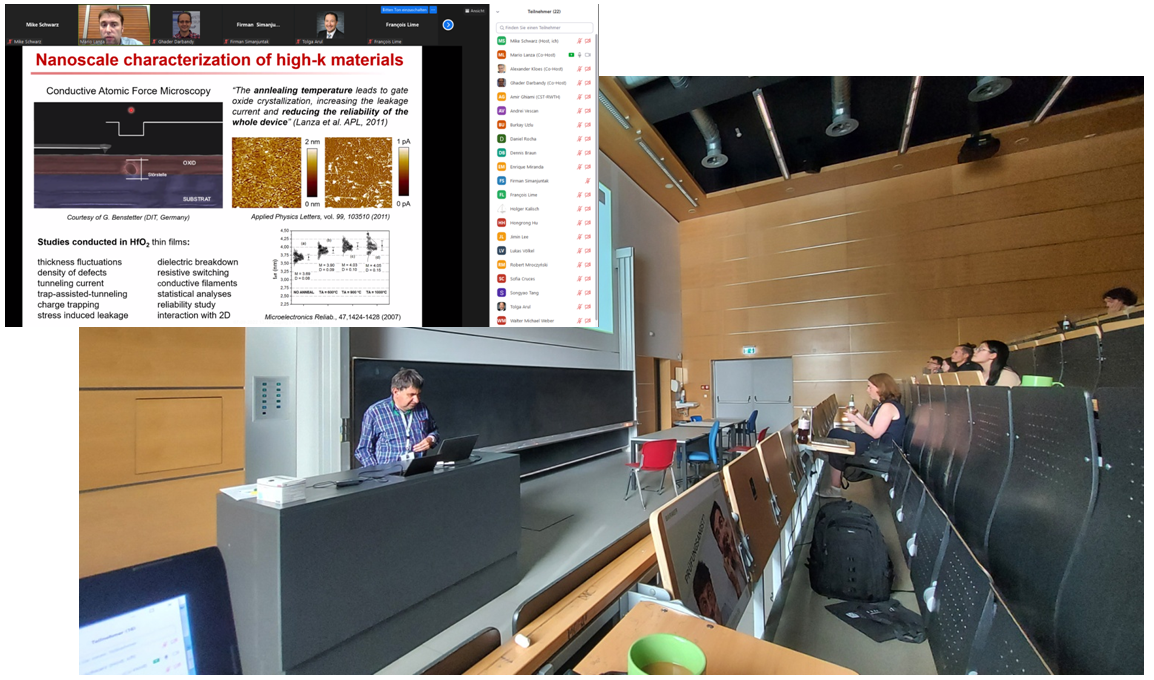MiniColloqium on Memristive Devices
The EDS Germany Chapter organized a hybrid MiniColloqium entitled “Memristive Devices” on September 7, 2022. It was held in the timeframe of the 6th Schottky Barrier Symposium on MOS Devices at the Competence Center for Nanotechnology and Photonics (NanoP) of THM – University of Applied Sciences. It was organized by the EDS Germany Chapter and co-sponsored by THM. The MQ was attended by 19 IEEE participants, as well as other non IEEE members.
The organization committee (Prof. Kloes from THM, Prof. Calvet from CNRS, and Prof. Schwarz from THM) made a successful MQ possible and happen by inviting top level experts on various domains of memristive devices. Topics regarding technology towards simulation and modeling were targeted.
After a short welcome of Prof. Schwarz and Prof. Kloes with instructions, the lectures started with Prof. Mario Lanza from KAUST (SA) on the topic “Characterization of materials and devices at the nano/atomic-scale”. Prof. Lanza offered detailed insights on AFM methods and their challenges to be considered during the characterization of memristive materials. After the lecture a long discussion took place on various questions from the participants.

Prof. Benjamin Iniguez introducing TMD memristors. The inset is showing Prof. Lanza during his AFM presentation.
The feedback of both, lecturers and participants was very positive to the organization, which planned for longer timeslots to enable detailed discussion.
After a coffee break the lecture continued by Prof. Enrique Miranda from Universitat Autònoma de Barcelona (ES) with a talk entitled “Compact modeling of memristive devices for neuromorphic computing”. First, Prof. Miranda introduced the newbies/rookies into the topic of memristive devices and went through different aspects and impacts for the compact modeling approaches. He showed details in static and dynamic modeling and its impact on the IV characteristics. Finally, he offered a SPICE compact model which allows or multiple crossbar array circuit simulation. Afterwards, discussion on the aspects, limitations and advantages took place.
The MQ was closed by a talk of Prof. Benjamin Iniguez from Universitat Rovira i Virgili (ES) on “Challenges and solutions in compact modeling of TMD memristors”. He started in his lecture with an introduction and physical mechanisms in TMD memristors. Afterwards, Prof. Iniguez showed and reviewed modeling solutions including results of those. Finally, he gave a conclusion and outlook of the status quo and where further solutions are required.
Afterwards, Prof. Schwarz closed the MQ and thanked all the speakers and participants for being part of this MQ and the contributions. Present attendees met afterwards for dinner in an old castle nearby the university.
